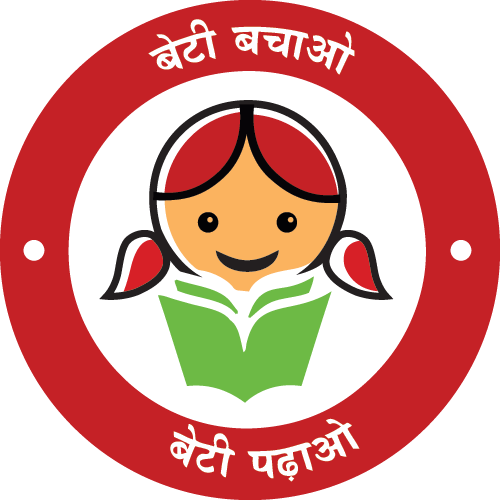Dr. Charu WaliKhanna, Member, NCW visited at Amritsar on 22.06.2012 to discuss ‘Issues concerning women”
Dr. Charu WaliKhanna, Member, NCW visited at Amritsar on 22.06.2012 to discuss ‘Issues concerning women” with special reference to Domestic Violence. The programme was organised by Punjab State Commission for Women, at Amritsar and included collaboration of NGOs, police official and administration. Present in the meeting were Senior Police Officers, including Shri Narinder Singh, A.C.P. and other and Smt Gurinderjit Kaur, District Programme Officer, Amritsar, Smt. Ravinder Kumar, CDPO, Smt. Surinder Kaur, CDPO, and Narinderjit Singh Pannu, D.S.S.O., Amritsar.
It emerged that no independent Protection Officer has been appointed for the implementation of Protection of Women from Domestic Violence Act¸ 2005. The CDPOs have been given additional charge and they are already overburdened with the work of pensions and accounts, besides their own duties. Member noted the lack of seriousness on the part of the state government in implementing the Protection of Women from Domestic Violence Act and expressed regret that the Act was not being implemented in letter and spirit as full-time protection officers were not appointed.
Independent Protection Officers needed to be appointed by the state government under the Protection of Women from Domestic Violence Act for conducting enquiries into cases of domestic violence. She advised the CDPOs that Protection Officers are expected to exercise their responsibility carefully and arrange for counselling between women victims and the spouse or other respondent. Protection Officers on ascertaining the gravity of the situation must make efforts to extend maximum assistance to the woman. Domestic Violence incidents warranted case-specific orders such as grant of immediate maintenance, ‘residence order’ directing the in-laws or spouse to allot a separate room for a woman vacating house under duress. Due to lack of awareness of the Act it was suggested that the Punjab State Commission for Women play proactive role and organize Awareness Seminar in Amritsar in which sarpanch of the villages participate so that the message can go down to the village level.
Dr. Charu WaliKhanna, Member, visited Mahila Police Thana and met the complainants and victims of violence. She noted that mostly cases are registered under sections 498A/406 IPC. Since independent Protection Officers have not been appointed, the police is playing a major role. Cases which are not compromised get registered and the CDPO/Protection Officer execute the orders of the magistrate. There are 5 Suvidha Kender helpline phone numbers available and a Committee monitors the same comprising ACP, DA Legal, CDPO etc. Member, NCW also visited the State Protection Home and Special Home at Majitha Road and interacted with the inmates, some of who are in custody under the Immoral Trafficking (Prevention) Act (ITPA ). Rehabilitation programmes comprising classes of Cutting, tailoring and Music are being conducted.
Dr. Charu WaliKhanna, Member, NCW was given a warm welcome by the Reception Committee of the Sri Harmandir Sahib, (The Golden Temple) Amritsar. She was gifted a set of books on Sikhism and told of the high status women in the Sikh religion. According to the “Sikh Reht Maryada” Code of Sikh Conduct and Conventions, Chapter X-Living in Consonance with Guru’s Tenets, Article XVI (s) It is not proper for a Sikh woman to wear veil or keep her face hidden by veil or cover; thereby promoting women’s empowerment.
Further there is no restriction on women’s clothes as according to (T)For a Sikh, there is no restriction or requirement as to dress except that he must wear Kachhehra** and turban. A Sikh woman may or may not tie turban.
“Woman also gained the religious rights. Guru Nanak felt for the suffering womankind and gave them their full share in the goodness of God. She was declared ( see Var Asa, XIX) to be directly responsible for her morals to god. Religious congregations were thrown open to them. They were to partake freely in the religious any secular observance, and no social custom was to hinder them in doing so. Sikh women are to this day seen attending all occasions of public worship, all conferences, along with the members of the other sex, and their con-joint as well as alternate singing, in which they offen lead the chorus....”
Member also viewed the colorful Retreat ceremony at Wagah Border. Both the Indian and Pakistani armed soldiers fully decked in the uniform close the India-Pakistan border gates by enacting a particularly hostile parade marked by lowering their respective flags. To see the ceremonial parade, a large number of tourists throng the border from both sides. It is a matter of great pride for Indian womanhood that for the first time in over four decades, the ceremony commences with the marching of two Border Security Force (BSF) Mahila Constables who lead by marching towards the iron international gate, where the flag posts of India and Pakistan are located.




















